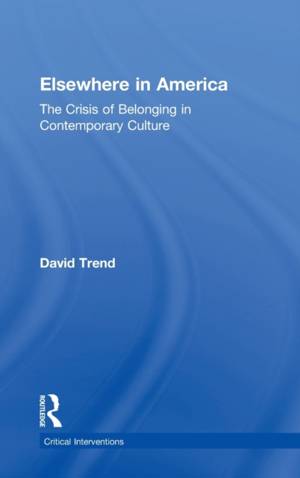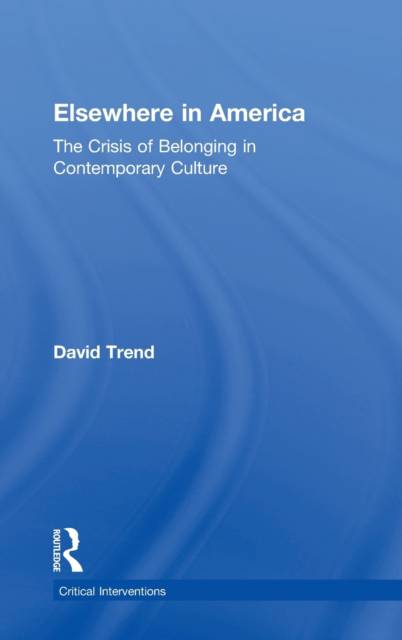
- Afhalen na 1 uur in een winkel met voorraad
- In januari gratis thuislevering in België
- Ruim aanbod met 7 miljoen producten
- Afhalen na 1 uur in een winkel met voorraad
- In januari gratis thuislevering in België
- Ruim aanbod met 7 miljoen producten
Omschrijving
Americans think of their country as a welcoming place where everyone has equal opportunity. Yet historical baggage and anxious times can restrain these possibilities. Newcomers often find that civic belonging comes with strings attached--riddled with limitations or legally punitive rites of passage. For those already here, new challenges to civic belonging emerge on the basis of belief, behavior, or heritage. This book uses the term "elsewhere" in describing conditions that exile so many citizens to "some other place" through prejudice, competition, or discordant belief. Yet, in another way, "elsewhere" evokes an undefined "not yet" ripe with potential. In the face of America's daunting challenges, can "elsewhere" point to optimism, hope, and common purpose?
Through 12 detailed chapters, the book applies critical theory in the humanities and social sciences to examine recurring crises of social inclusion in the U.S. After two centuries of incremental "progress" in securing human dignity, today the U.S. finds itself torn by new conflicts over reproductive rights, immigration, health care, religious extremism, sexual orientation, mental illness, and fear of terrorists. Is there a way of explaining this recurring tendency of Americans to turn against each other? Elsewhere in America engages these questions, charting the ever-changing faces of difference (manifest in contested landscapes of sex and race to such areas as disability and mental health), their spectral and intersectional character (recent discourses on performativity, normativity, and queer theory), and the grounds on which categories are manifest in ideation and movement politics (metapolitics, cosmopolitanism, dismodernism).
Specificaties
Betrokkenen
- Auteur(s):
- Uitgeverij:
Inhoud
- Aantal bladzijden:
- 316
- Taal:
- Engels
- Reeks:
Eigenschappen
- Productcode (EAN):
- 9781138654433
- Verschijningsdatum:
- 10/05/2016
- Uitvoering:
- Hardcover
- Formaat:
- Genaaid
- Afmetingen:
- 152 mm x 229 mm
- Gewicht:
- 594 g

Alleen bij Standaard Boekhandel
Beoordelingen
We publiceren alleen reviews die voldoen aan de voorwaarden voor reviews. Bekijk onze voorwaarden voor reviews.









